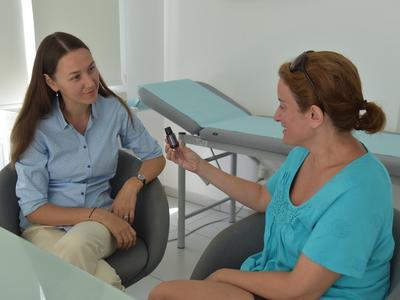Struggling to start a family?
You are not alone
By Valerie Nevgen
This summer, the government gave the green light – as well as hope to childless couples – to a plan that will enhance subsidies for infertility treatment.
Approved in July, it broadens access and support for those struggling with infertility, a positive step to correct some of the misconceptions surrounding the issue of conception.
According to the World Health Organization, around 17.5 per cent of the adult population worldwide experiences infertility.
Interestingly, the rates are comparable for high, middle, and low-income countries, indicating that this is a major health challenge globally.
“Infertility does not discriminate,” Director-General at WHO Dr Tedros Adhanom Ghebreyesus said, and I would agree.
The repercussions of a failure to conceive can be wide and varied.
If a couple has been trying for a baby unsuccessfully for more than a year, it’s probably time to look for a reason. Difficulty conceiving can be due to a number of reasons including hormonal imbalance, age, lifestyle and medical conditions.
Unexplained infertility often requires more advanced diagnostic tools and treatments to uncover subtle issues, while miscarriages need investigating to find any underlying causes.
Given the emotional toll involved, this can be an incredibly stressful situation, leading to misunderstandings not only between couples and medics but also between couples themselves.
With no ready answers available, it can create an environment of doubt that is often hard to bear. Then there’s the constant overthinking because it’s difficult to concentrate on anything else when you can’t attain the one thing you dearly want.
But there are answers out there – and there are ways to help.
Although methods and protocols may vary between hospitals and clinics, most will start by looking at the general health of any couple struggling to conceive; checking how their organs are working and their state of mind because stress can play a huge factor in our overall wellbeing, including reproductive health.
There are also assisted reproductive technologies evolving all the time that enable the body to prepare as much as possible for conception to occur and for pregnancy to proceed.
For example, work can be done to reduce chronic inflammation and remove any points of chronic infection, all of which can lead to immune infertility.
But to get the answers needed, every couple needs to take that first step and ask for help.
Once an appointment with a specialist has been arranged, the foundations upon which infertility treatment and support can begin.
From here all the right tests can be made, such as hormone analysis, to reach an understanding of where the difficulties might lie.
Finding a specialist to trust in is also important because they will play an important role in one of the biggest events of your lifetime.
At the beginning it’s all about self-control, trust and conscious steps. This is very important to understand.
Preparing for pregnancy actually takes about three months, during which time it is important to improve the function of the reproductive system in both partners to increase the chances of conceiving.
Nourishing the body with amino acids, vitamins and phospholipids can also provide a welcome boost to reproductive and mitochondrial health. In an egg cell there are many mitochondria and only a couple of mitochondria in sperm so this is a very important strategy for maintaining health, specifically during the preconception period.
Look for preconception health programmes to optimise the health of both partners before conception. This is one of the best ways to ensure the best possible environment for a healthy pregnancy and baby.
Examine your own lifestyle and any environmental factors that might be an issue to bring positive changes that will enhance reproductive health. For example, countless studies have shown that smoking can reduce fertility by negatively affecting hormone production, harming the reproductive system, and damaging the DNA in sperm.
And finally, don’t be afraid to reach out for emotional support. Help is available and it can play a huge part in setting you up for success.







